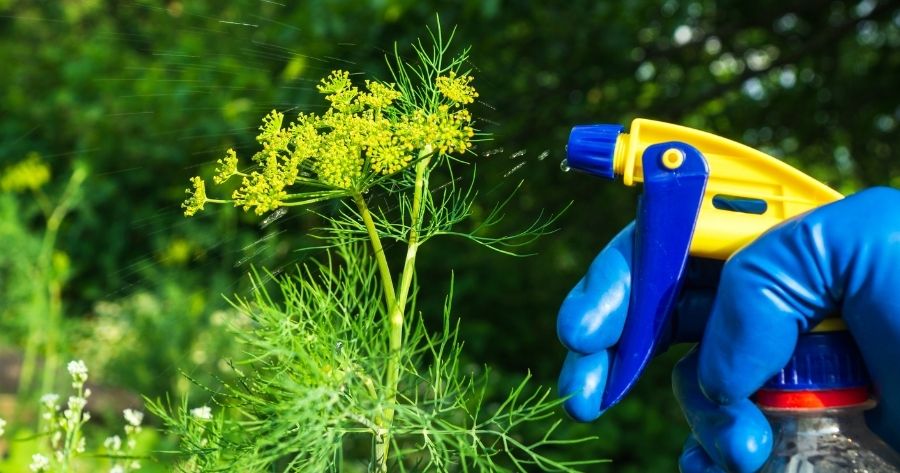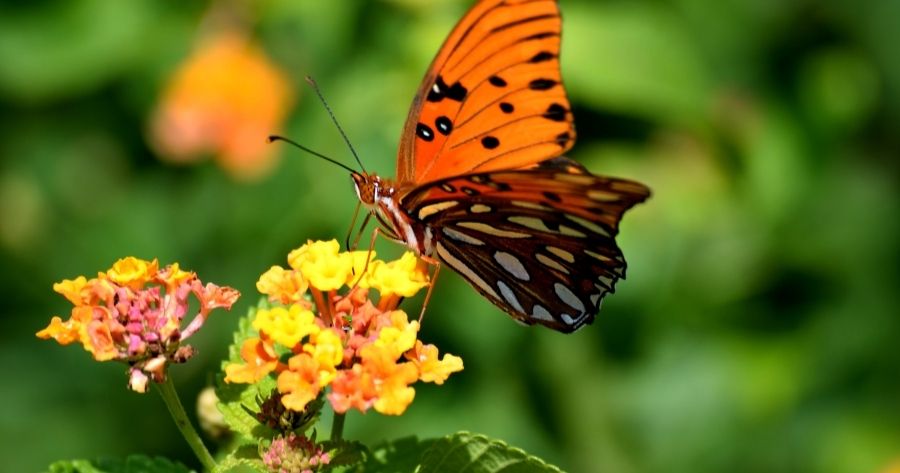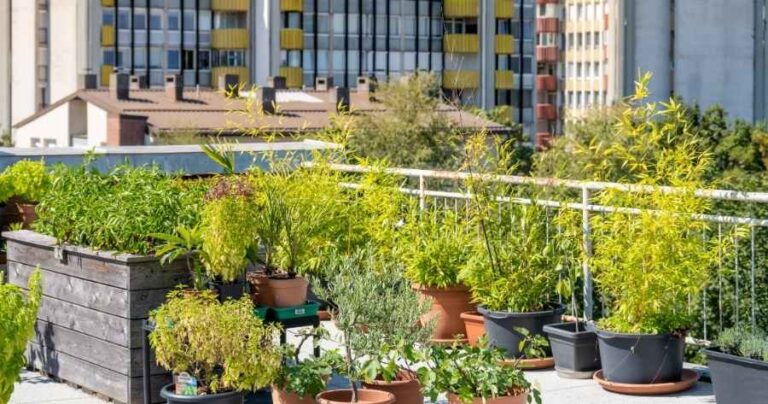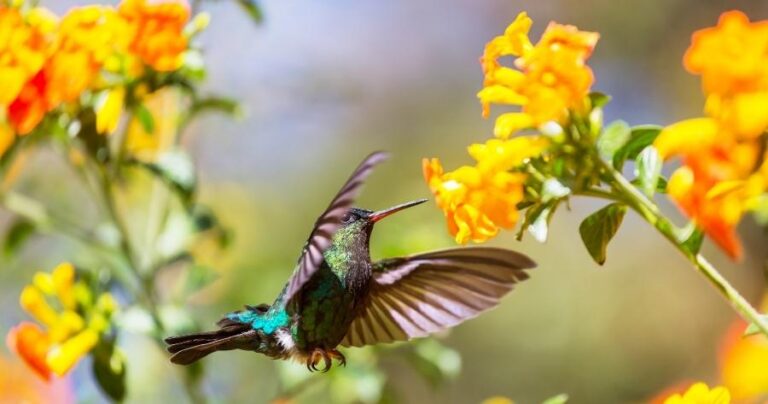
How To Repel Insects Naturally In Your Garden
Gardening is a rewarding experience that connects you with nature, provides fresh harvests, and transforms your backyard into a sanctuary. Yet, one of the biggest challenges every gardener face is dealing with insects. While some insects are essential allies in the ecosystem, others cause serious damage to plants, flowers, and vegetables. Aphids drain nutrients from tender stems, slugs chew holes in lettuce leaves, and whiteflies infest tomatoes overnight.
Many gardeners turn to chemical pesticides to solve the problem, but these solutions often do more harm than good. Synthetic sprays kill indiscriminately, wiping out both harmful and beneficial insects, contaminating soil, and reducing biodiversity. More importantly, they can pose health risks to children, pets, and even the food we consume.
The good news? There are countless natural methods to repel insects in your garden—eco-friendly, cost-effective, and safe for the environment. This guide will cover in detail how to protect your plants naturally through companion planting, beneficial insects, essential oils, DIY sprays, soil care, and eco-friendly gardening practices. With the right strategies, you’ll transform your garden into a thriving, pest-resistant ecosystem.

The Role of Insects in Your Garden
Before diving into repellents, it’s essential to recognize that not all insects are pests. Some are crucial pollinators, while others prey on harmful bugs. To practice effective organic pest control, you need to know which insects to repel and which ones to encourage.
Common Harmful Insects:
- Aphids -Tiny sap-sucking pests that weaken plants.
- Cabbage Worms – Chew through leafy greens like kale, cabbage, and broccoli.
- Whiteflies – Spread quickly on tomatoes and peppers.
- Japanese Beetles – Skeletonize leaves of roses and fruit trees.
- Slugs & Snails – Thrive in moist areas, damaging seedlings and leafy vegetables.
- Spider Mites – Leave yellow spots on leaves and thrive in hot conditions.
Beneficial Insects to Protect:
- Bees & Butterflies – Essential for pollination.
- Ladybugs – Devour aphids and mites.
- Praying Mantises – Feed on grasshoppers, caterpillars, and beetles.
- Ground Beetles – Hunt slugs, snails, and root maggots.
- Hoverflies – Pollinators that also eat soft-bodied pests.
The goal of natural pest control isn’t to eliminate all insects, it’s to maintain balance by reducing harmful populations while encouraging beneficial ones.
Natural Pest Control Through Companion Planting
Companion planting is one of the oldest and most effective natural pest repellents. Certain plants emit scents or compounds that repel insects, while others attract beneficial predators that feed on pests. This ancient practice reduces pest populations naturally while boosting plant growth.
Best Companion Plants for Natural Pest Control
- Basil – Repels flies, mosquitoes, and tomato hornworms.
- Marigolds -Known for deterring nematodes, aphids, and whiteflies.
- Garlic and Onions – Strong odors repel beetles, aphids, and rabbits.
- Lavender – Keeps moths, fleas, and mosquitoes away.
- Mint – Drives off ants and cabbage moths.
- Rosemary – Protects against carrot flies and cabbage loopers.
- Chives – Repel Japanese beetles and aphids.
- Nasturtiums – Act as a trap crop, luring aphids away from other plants.
Using companion plants is one of the top strategies for organic insect repellent for gardens and natural pest control for vegetables.
By planting these around your vegetables or flowers, you create a natural barrier against pests.
Natural Pest Control Through Beneficial Insects
Instead of waging war on all insects, invite the right ones into your garden. These beneficial insects naturally reduce pest populations without the need for chemicals.
How to Attract Beneficial Insects
- Plant dill, fennel, coriander, and yarrow to provide nectar.
- Leave small areas of wildflowers to shelter pollinators.
- Avoid broad-spectrum pesticides that kill allies along with pests.
- Provide shallow water sources for insects to thrive.
Examples:
- Ladybugs can eat up to 5,000 aphids in their lifetime.
- Parasitic Wasps lay eggs inside caterpillars, naturally stopping infestations.
- Lacewings have larvae nicknamed “aphid lions” because of their appetite.
This creates an eco-friendly gardening system where nature does the pest control for you.
DIY Natural Sprays to Repel Garden Insects
Homemade sprays are an effective, affordable way to repel harmful insects. Most use ingredients already in your kitchen.
Top DIY Natural Spray Recipes
- Garlic Spray – Blended garlic diluted in water deters aphids and beetles.
- Neem Oil Spray – Organic neem oil mixed with liquid soap kills soft-bodied pests.
- Pepper Spray – Hot pepper + water creates a strong deterrent for chewing insects.
- Herbal Spray – Mint, rosemary, and thyme steeped in water repel a wide range of pests.
- Essential Oil Spray – Peppermint, citronella, and eucalyptus oils keep mosquitoes, ants, and flies at bay.
These are not just natural insect repellents for plants, but also safe for humans and pets.
Physical Barriers and Garden Defenses
Sometimes the simplest solution is keeping pests out with physical barriers:
- Row Covers – Protect seedlings from moths and beetles.
- Copper Tape – Prevents slugs from climbing raised beds.
- Sticky Traps – Capture whiteflies, gnats, and thrips.
- Netting & Mesh – Keep pests away from fruits and brassicas.
- Beer Traps & Eggshells – Effective for slugs and snails.
This section ranks well under organic garden pest prevention methods.
Natural Pest Control Through Strengthening Plants Against Insects
Healthy soil = strong plants = fewer pests. Insects often target weak, nutrient-deficient plants.
Soil Care Tips
- Add compost regularly to feed microbes and boost immunity.
- Use mulch to regulate temperature and reduce weeds.
- Practice crop rotation to disrupt pest life cycles.
- Encourage earthworms for natural aeration and fertility.
- Avoid synthetic fertilizers that create weak, pest-prone growth.
By building resilient soil, you naturally reduce the risk of insect attacks.
Kitchen Hacks for Natural Insect Repellent
Your kitchen is full of simple pest-control tools:
- Coffee Grounds – Deter slugs, snails, and ants.
- Cinnamon Powder – Prevents fungal growth and deters ants.
- Citrus Peels – Repel mosquitoes and garden ants.
- Vinegar Spray – Useful for ants and fruit flies.
- Baking Soda -Helps control powdery mildew and crawling pests.
Cheap, safe, and highly effective, these hacks make organic pest control at home easy.
Wildlife Allies: Birds, Frogs, and Bats
Inviting the right wildlife adds another layer of natural pest control.
- Birds – Bluebirds and wrens eat beetles and grasshoppers.
- Frogs & Toads – Eat mosquitoes, moths, and slugs.
- Bats – A single bat can eat thousands of insects per night.
Encourage them by adding birdhouses, shallow water dishes, and small habitats.
Long-Term Prevention Strategies
- Polyculture Gardening – Mixing crops confuses pests.
- Crop Rotation – Prevents soil-borne insects from building up.
- Regular Monitoring – Spot pests early before infestations spread.
- Seasonal Planning – Plant resistant varieties that naturally repel insects.
Consistency is key; natural pest control takes patience, but results are long-lasting.
Conclusion
Learning how to repel insects naturally in your garden is about more than just protecting plants; it’s about creating a healthy ecosystem. By combining companion planting, beneficial insects, homemade sprays, soil health, and wildlife allies, you build resilience into your garden.
Instead of relying on harmful chemicals, these eco-friendly strategies give you a thriving, balanced space where your plants flourish naturally. With consistency, patience, and the right methods, your garden can remain productive, vibrant, and pest-resistant season after season.






